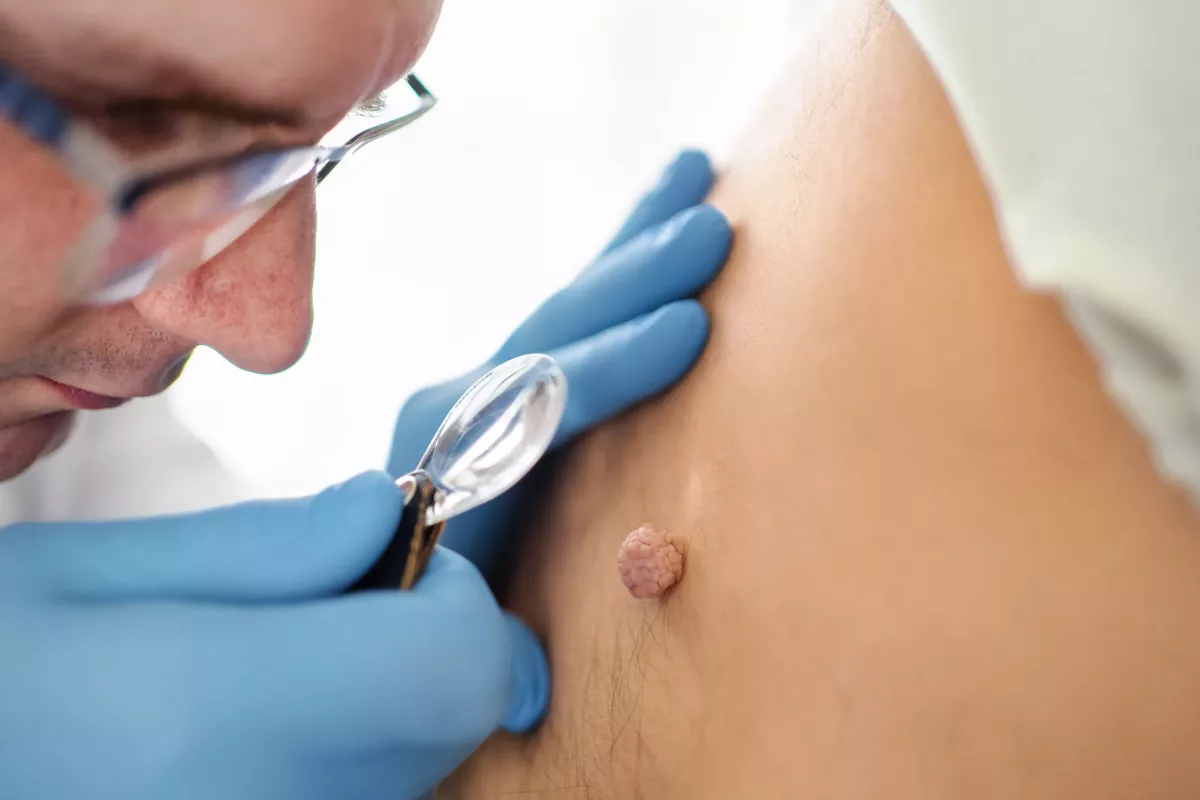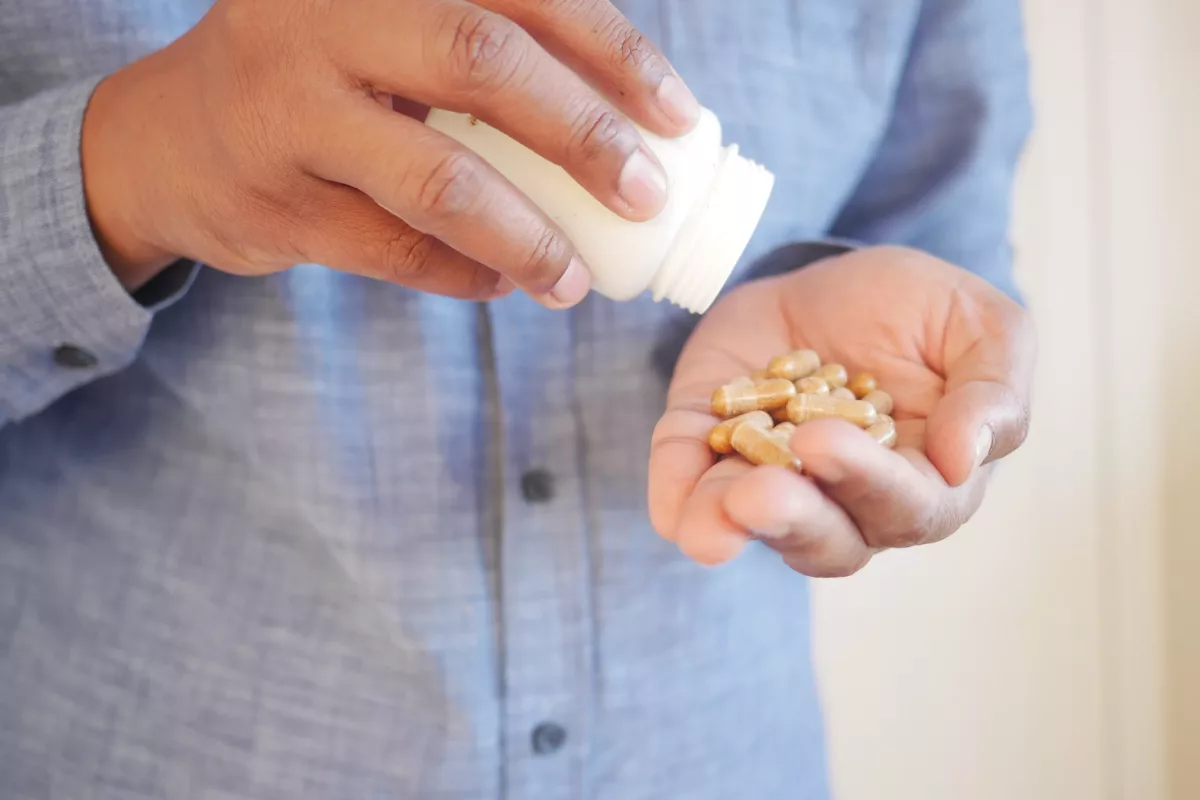One of the most common sexually transmitted infections (STIs) is genital warts. It is caused by a virus called human papillomavirus (HPV). However, there are multiple types of human papillomavirus. Almost all sexually active people will get it at some point in their lives.
This STI usually negatively affects the moist tissues of the genitals. When the infection occurs, it causes small and skin-colored bumps. Furthermore, these bumps often resemble cauliflower and are too small to be seen with the naked eye.
In any case, only several types of HPV can cause genital warts. Other human papillomavirus forms may cause cancer and other STIs. To prevent HPV, it is advised to get a vaccine against it.
Symptoms
The symptoms depend on the sex (male or female), the severity of the condition, existing health problems, and other factors. Check below some locations where genital warts can grow:
- Anus (including anal canal)
- Cervix
- Scrotum
- In the region between the outer part of the genitals and the anus
- Vagina walls
- Vulva
- The penis tip or shaft
However, genital warts can appear in the mouth or throat of a person who has had oral sex with an infected person. Check below some general genital warts symptoms:
- Small swellings in the genital region
- A cauliflower-like shape (it occurs when several warts appear one next to another)
- Persistent itching or discomfort in the genital area
- Bleeding during sexual intercourse
In some cases, the genital warts can be so small that you cannot see them. In people with weakened immune systems, these warts can multiply into large clusters.
If you or your partner has unusual warts or bumps in the genital area, immediately visit your healthcare professional.
Causes
The main cause of genital warts is a virus called human papillomavirus. Generally, there are more than 40 strains of HPV that negatively affect the genital area.
In most cases, this sexually transmitted infection spreads through sexual contact. The infection spreads to other people even if the warts are small and you cannot see them.
Risk Factors
Almost all people who are sexually active get this virus at some point in their lives. Check below some factors that could increase your risk of developing genital warts:
- Not getting the human papillomavirus vaccine
- Unprotected sex, especially with multiple partners (it is advised to use condoms or dental dams during sexual activity)
- Sexual activity with an infected person
- Previous sexually transmitted infections
- People who become sexually active at a young age
- Weakened immune system (it is usually caused by HIV infection, certain medicines, and organ transplants)
What Are The Potential Complications of Genital Warts?
Human papillomavirus may cause some complications, especially if it is not treated. Check below some examples:
- Cancer
- Recurrent respiratory papillomatosis (in rare cases)
- Bleeding
- Psychosocial impact
- Urinary problems
- Pregnancy issues – In rare cases, warts may become larger, causing urinating problems.
How to Prevent Genital Warts?
The only sure way to prevent this infection is an HPV vaccine. However, the infection can also be prevented by limiting the number of sexual partners and protective measures such as condoms or dental dams.
HPV Vaccination
According to the Centers for Disease Control and Prevention (CDC), routine HPV vaccination is recommended for girls and boys aged between 11 and 12 years. However, the first vaccine is usually given at 9 years old. The CDC suggests that the first vaccine should be given to children before their first sexual intercourse. Commonly, adverse reactions caused by the vaccine are mild and include soreness at the injection site, headaches, low-grade fever, and others.
Generally, the CDC recommends HPV vaccination every 6 months for children aged 11 and 12 years. As per studies, two doses of the HPV vaccine are enough for children under 15 years old. However, people over 15 years old also receive HPV vaccines. They should get 3 doses by 26.
The United States Food and Drug Administration (FDA) has approved an HPV vaccine for males and females between 9 and 45 years old. It is called Gardasil 9. For more details, discuss it with your healthcare provider.
Diagnosis
Usually, physicians find genital warts during a physical examination. However, some people may develop small warts that cannot be seen with the naked eye. Therefore, they will perform some tests to confirm the condition and exclude others that cause similar symptoms to genital warts. For example:
Pap Tests
This is an important test for females, and it should be performed regularly. It helps check the vagina and cervix for changes caused by STIs. These tests can identify cervical cancer signs.
During a pap test, physicians use a device called a speculum that holds open the vagina. It allows the doctor to see inside the vagina and uterus. Thereafter, they may use a long-handled tool to collect small samples of the cervix cells. These samples are tested in the laboratory for irregularities linked with STIs and cervical cancer.
HPV Test
There are several HPV types that are linked with cervical cancer. Usually, a Pap test is enough to determine changes associated with cancer of the cervix.
In most cases, this test is performed in females aged 30 and older. For younger women, this test is not useful because HPV goes away on its own.
Treatment
Some people with small genital warts and without symptoms may not need treatment. However, if you experience symptoms such as intense itching, burning, and pain, do not hesitate to see a doctor for diagnosis and proper treatment. Frequently, genital warts return after treatment. Unfortunately, there are no effective treatments for human papillomavirus. Check below some treatments usually recommended by doctors for people with genital warts:
Medicines
The following medications are used to treat warts caused by this infection. For example:
- Imiquimod – This is a specific cream used to boost immunity to fight against genital warts. It is not allowed to have sexual contact while using this medicine. The most common adverse reactions of Imiquimod cream are blisters, body aches or pain, cough, rashes, and fatigue (extreme tiredness).
- Podophyllin and Podofilox – These are plant-based substances used to destroy warts caused by this STI. It is not allowed to put this substance inside the body, and it cannot be used by pregnant people. Mild skin irritation, sores, and pain are the most common negative effects of these medicines.
- Trichloroacetic acid – This is a specific chemical used to burn genital warts. It can also be used to destroy warts that occur inside the body. The side effects are similar to previous medications.
- Sinecatechins – This is an ointment that helps treat warts caused by this sexually transmitted infection.
You should not use wart removers sold in stores because they are not intended for the genital area.
Surgery
The following surgeries are used when medicines and other treatments do not work. They are often used in pregnant people to remove warts that may spread to the unborn baby. Check below some surgery types often used to remove genital warts:
- Cryotherapy – This treatment uses liquid nitrogen to freeze warts. Cryotherapy may be performed multiple times. The most common side effects include swelling and pain.
- Electrocautery – This surgery uses electric current to burn warts.
- Surgical excision – It involves the removal of the warts and anesthesia that helps prevent pain during the procedure.
- Laser treatments – This option uses intense light beams to destroy the warts. Commonly, treatments with lasers are expensive. Pain and scarring are the most common adverse reactions to these treatment options.
Frequently Asked Questions
Can a genital wart go away?
While some people get rid of warts on their own without treatment, others need treatment. Unfortunately, warts can recur because there is no treatment for human papillomavirus.
What can be mistaken for genital warts?
Some health conditions can be mistaken for genital warts. These include:
- Skin tags
- Molluscum contagiosum
- Seborrheic keratosis
- Herpes
- Syphilis
Previous conditions can be mistaken for this infection because they cause similar symptoms to the genital warts.
How long are genital warts contagious?
This infection can spread to other people as long as the warts persist on the genital region. When warts disappear, you are no longer contagious. Ask your healthcare provider if you have additional questions.




